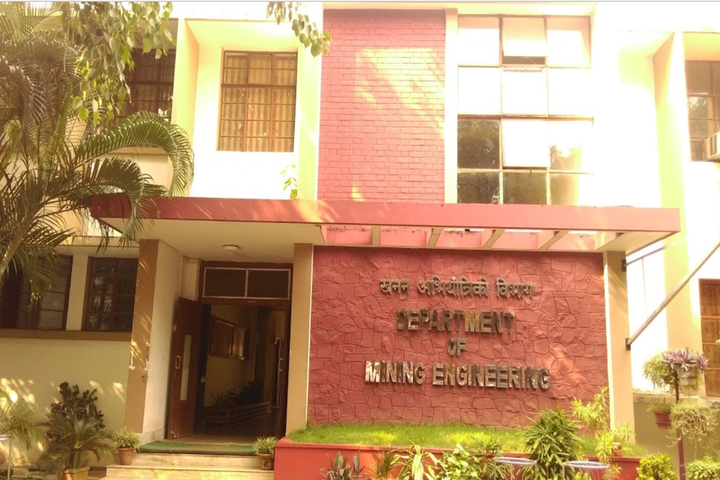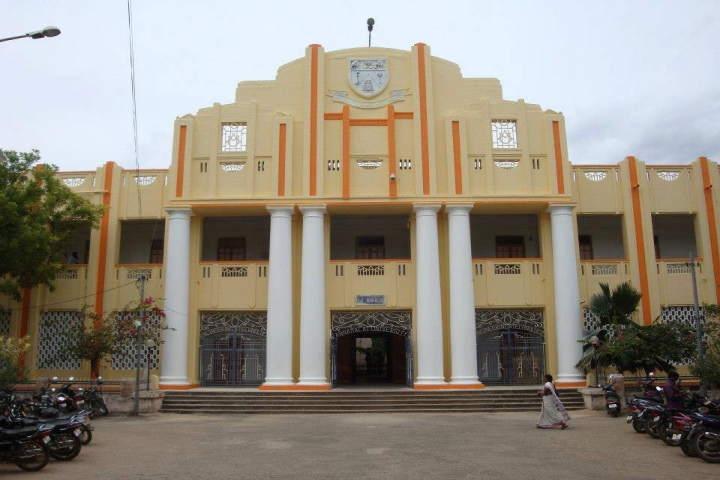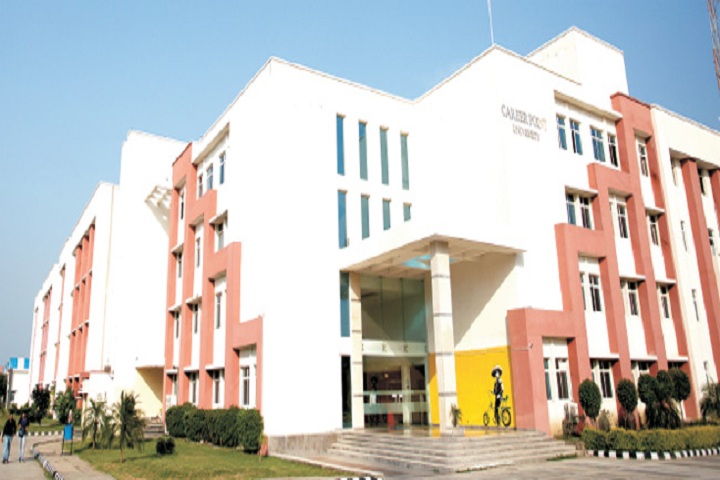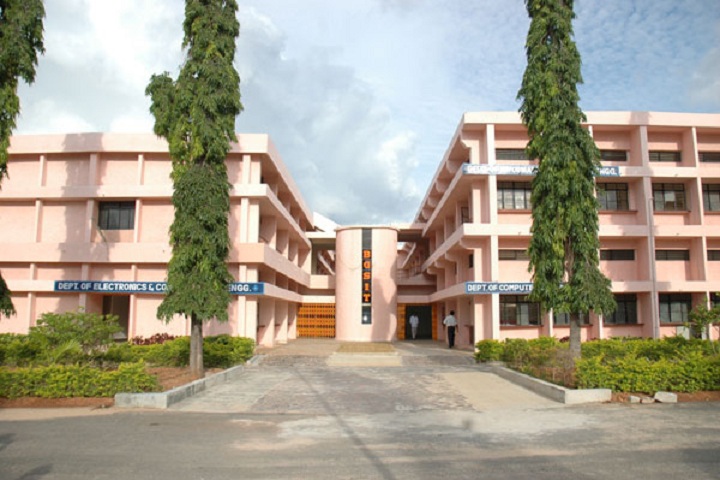
Infrastructure Management Course Details - Fees, Subjects, Syllabus, Duration, Eligibility, Career Scope
Degrees offered: MBA, M.E /M.Tech., M.Sc., B.B.A, B.E /B.Tech
What is Infrastructure Management
Infrastructure Management is one of the most sought-after management specialisations. Students will have a comprehensive understanding of the general management characteristics through the course curriculum. It focuses on the Construction Industry, a rapidly developing and important sector of India, and develops individuals with expertise in both the construction industry and infrastructure-related fields.
The demand for professionals with advanced degrees is also growing as the infrastructure industry expands. At the postgraduate level, universities all over India offer courses in Infrastructure Management, facilities management, real estate supervision, and infrastructure finance are some of the major industry topics. T
he course provides students with an overview of infrastructure management components such as contract management, project planning, designing contracts, supervision, and policy formation. Additionally, students are capable of addressing issues with the nation's infrastructure and innovation.
Infrastructure Management Course Details- Highlights
| Particulars | Values |
|---|---|
Branch Name | Infrastructure Management |
Infrastructure Management Degrees | MBA, BBA |
Infrastructure Management Course Duration | 2 years |
Infrastructure Management Eligibility Criteria | Graduation in any discipline + Entrance Exam |
Infrastructure Management Admission Process | Entrance Exam + Group Discussion + Personal Interview (GD-PI) |
Infrastructure Management Entrance Exams | |
Infrastructure Management Course Fees for the entire duration | Rs. 10 Lakh to Rs. 15 Lakh |
Infrastructure Management Top Colleges | UNIRAJ, Annamalai University, IIT Kanpur, IIT Kharagpur, and Amity University Mumbai |
Infrastructure Management Career Options | Real Estate Manager, Infrastructure Engineer, Construction Manager, Infrastructure Project Manager, Finance Manager, Project Consultant |
Infrastructure Management Average Salary | Rs. 8.5 Lakh per annum |
Infrastructure Management Top Recruiters | Reliance Infrastructure Limited, Adani Group, Wipro, GMR Infrastructure Limited, Hempel, IRB Infrastructure, Hindustan Construction Company, KPMG |
Eligibility Criteria (UG & PG) of Infrastructure Management
The Eligibility criteria are mostly similar to all other UG/PG courses. The criteria mostly depend on universities and might vary. Some of the most common requirements in the Infrastructure Management course are given below –
For Undergraduate Infrastructure Management Courses
Students must have a passing certificate of 10+2 from a recognised board of examination.
Students must pass any admission test conducted by the institute.
Students must provide all the documents additionally required by the institute.
For Post Graduate Infrastructure Management Courses
Students are required to have a Bachelor’s degree in any of the courses from a recognised university.
Students must qualify any national level or university-specific entrance examination required for admission.
Students should be able to provide all certificates with any documents required by the institute.
Browse Popular MBA Colleges By Cities
Browse Popular MBA Colleges By States
Entrance Exams for Infrastructure Management Course
Common Admission Test (CAT)- The test is conducted by the Indian Institute of Management situated across the country for admissions into postgraduate management courses. It is mandatory to have a graduation degree to be eligible for the exam. It is held in November.
Browse more details about CAT
Common Management Admission Test (CMAT)- It is a computer-based examination conducted at a national level for post-graduation management courses. Students must have a bachelor’s degree or final year students with results declared before the next academic session can also apply.
Browse more information about CMAT
Symbiosis National Aptitude Test (SNAP)- SNAP is an admission test for Symbiosis institutes situated across the country for various post-graduation exams. It is also a national level examination held in January.
Browse more details about SNAP
Management Aptitude Test (MAT)- It is a national level examination conducted 4 times a year for enrolment into numerous MBA and PGDM courses of management in more than 600 business schools across India. Students with an undergraduate degree can apply.
Browse more details about MAT
College Predictors VIEW ALL
Scope of Infrastructure Management in India and Abroad
Infrastructure plays a key role in branding companies in countries. It is a very important factor of development not only in high-rise projects but also in the basic infrastructure requirements like drainage systems to developing cities. The Infrastructure Management course not only provides a wide range of career options in infrastructure policies, real estate development, financial analysis, and project supervision but allows showing innovation in the field at a global level.
With more private firms investing in India for major city development projects, the Infrastructure industry is blooming. This has also created a demand for highly skilled and educated professionals with Infrastructure Management degrees. The infrastructure industry is not limited to domestic and private projects, aspirants also opt for infrastructure development in fields like Railways, Water Supply, Oil and Gas Transportation, etc. After gaining some experience in the field, aspirants can also try to become a part of international infrastructure management projects, and it will help then to increase their professional efficiency as well as provide a unique experience.
Students also liked
Course Fees Infrastructure Management
| Minimum Fees | Maximum Fees | |||
|---|---|---|---|---|
| Private | Government | Private | Government | |
| UG | ||||
| PG | ||||
| DOCTORAL | ||||
Course Subjects
Infrastructure Management UG Syllabus
Some of the subjects students study in BBA Real Estate Management are Service-level management, Organisation Management, and E-waste Disposal, and Incident Management.
| Semester 1 | |
| English-I | Basics of Mathematics and Statistics |
| Entrepreneurship Development and Management of Real Estate | Computer Applications-I |
| Real Estate Fundamentals | - |
| Semester 2 | |
| Soft-skills for Business | Management Concepts and Practices |
| Practical on Technological Aspects of Business | Economics for Managers |
| Fundamentals of Accounting | - |
| Semester 3 | |
| Legal Framework for Real Estate | Accounting for Managers |
| Real Estate Valuation | Real Estate Development Model |
| Ethics and Environmental Studies | - |
| Semester 4 | |
| Real Estate Approval and Sanction | Building Materials and Design |
| Inventory and Materials Logistics Management | Construction Management |
| Financial Management of Business | - |
| Semester 5 | |
| Marketing Management | Human Resource Management |
| Real Estate Investment Management | Maintenance Management |
| Green Practices in Real Estate | - |
| Semester 6 | |
| Low-Cost Affordable Housing and Space-Saving Interiors | Business Operation Management |
| Research Methodology for Business | Summer Training |
| Major Project and Viva Voce | - |
Infrastructure Management PG Syllabus
At the postgraduate level of Infrastructure Management, students study subjects such as Oil and Gas Economics, Project Management, Corporate Social Responsibility, Roads, Highways and Bridges, and Climate Change and Infrastructure. In the table below, we have discussed the MBA Infrastructure Development Management (MBA-IDM) syllabus of Symbiosis Centre for Management and Human Resource Development.
Disaster recovery | |
FDI in the Infrastructure Sector | Quantitative Techniques |
Infrastructure Development | Space management |
IT Application in Infrastructure | Econometrics |
Infrastructure Finance | Business Statistics |
Careers in Infrastructure Management
The Infrastructure Industry is one of the most significant contributors to India's reputation as one of the world's economies with the quickest growth rates. Today, it is reasonable to say that a career in the infrastructure management sector is the most promising. Students have the option of choosing from a variety of career fields, and despite the competition, the higher employment rate makes it simple to join the Infrastructure Industry's corporate sector. Aspirants who choose infrastructure will make a direct impact to India's economy.
From private firm handling to government projects, aspirants can gain experience and skills over large subjects. And with the increased demand of the sector, career initiation has become relatively easier for candidates.
Popular Colleges in India offering MBA
Browse Top MBA Colleges Accepting CAT Score: Location-Wise
Upcoming trends
Lately, the Infrastructure Industry has become one of the most focused sectors for the Indian government as well as private firms. Some of the major achievements in this sector have occurred within the last decade. International projects like the bullet train project in collaboration with Japan are on the top list. The research and development domain in this field is not only focused upon by government agencies, but vast funding comes from some of the world-famous infrastructure private companies.
Some of the latest trends observed in the Infrastructure Management Industry are –
- Advanced Materials
- Virtual Reality
- Self-Healing Concrete
- Home Analytics
- 3D Printing
- Exoskeletons
- Wearable Technology
Browse infrastructure management certification courses
| Advanced Management Programme for Infrastructure | Infrastructure Development, PPPs and Regulation | Post Graduate Program in Infrastructure Management |
Also read: Infrastructure management certification courses
Job Profiles and Top Recruiters
The employment rate and the job profiles offered play a major role are aspirants deciding their career domain. The field of Infrastructure Management has been widely explored in the past few years. The demand for well-trained professionals is preeminent in both private as well as government sectors. The field is mainly dependent on the government for funding and other aspects. Companies sought professionals with a unique sense of their field, someone who can transform the conventional image of their brand and provide innovative ideas to the table.
Construction, building management, and infrastructure finance are some of the primary sectors in the field of infrastructure management. The available job profiles are quite varied and have different skill requirements due to the diversity of the industry. The employment rate is still gradually rising relative to all other connected areas as the profession becomes more and more popular among the younger generation. Along with having a competitive salary, the available positions also offer work stability and, for government employees, pension benefits. Some of the most common job profiles found in the Infrastructure Management field are given below, along with their description
| Job Profile | Job Description |
|---|---|
Real Estate Manager | A Real Estate Manager supervises the properties and land owned by the employer. Manages all the legal documentation regarding the estate. |
Infrastructure Engineer | An Infrastructure Engineer's responsibility is to design and develop the blueprints for the project. It’s his/her responsibility to work out any challenges in the design of the project |
A Construction Manager focuses on team productivity and is responsible for the completion of construction projects within the time frame. | |
Infrastructure Project Manager | The major role of the Infrastructure Project Manager includes supervising all the project-related aspects, such as design and development, time frame for the project. |
Finance Manager | A Finance Manager handles the stake and assets invested in the project and acts as the middleman between the investors and developers. |
A Project Consultant helps in determining various project-related aspects like location, budget and feasibility of the overall project beforehand. |
Top Recruiters
The number of employment prospects has nearly doubled over the past two decades due to the infrastructure industry's high demand and growth both in India and internationally. Students may find it helpful to select their career choice if they are aware of the top recruiters in that field. The following is a list of some of the top recruiters in India and throughout the world:
- Reliance Infrastructure Limited
- Adani Group
- Mott Macdonald
- Wipro
- GMR Infrastructure Limited
- Hempel
- IRB Infrastructure
- Hindustan Construction Company
- KPMG
Average Salary
Aspirants play a significant part in career development when they are aware of the job profiles available and the typical income in the industry they choose. The typical job descriptions available are listed below, along with the typical yearly income ranges for each. The amount listed below is an estimate; real packages vary depending on a variety of criteria, including the candidate's qualifications and job experience.
| Job Profile | Average Salary |
|---|---|
Real Estate Manager | Rs. 15.6 LPA |
Infrastructure Engineer | Rs. 10.08 LPA |
Construction Manager | Rs. 18.4 LPA |
Infrastructure Project Manager | Rs. 15 LPA |
Finance Manager | Rs. 17.4 LPA |
Planning Manager | Rs. 17.5 LPA |
Project Consultant | Rs. 9.2 LPA |
Source: AmbitionBox
Also read: Online Infrastructure Management Courses & Certifications
Required Skillset for Infrastructure Management
The skills required in most of the management courses are almost similar. Students equipped with these skills can be majorly benefitted at the recruiting process. Companies prefer candidates who have either job-related skills or work experience to fit in easily in the environment.
Some of the most crucial Infrastructure Management skills are mentioned below –
Team leadership – To be able to handle the team and be productive, taking the minimum amount of time for project completion requires leadership qualities.
Analytical Mindset – To be able to realise and locate the challenges ahead and prepare for the same needs good analytical skills.
Clarified Basic Concepts – The basic concepts related to the field as well as the job must always be clear to smoothly grasp the complex problems and solve them efficiently.
Tech Updated – As the industry is evolving quickly, one must be aware of all its achievements and latest technologies to maintain their professional presence.
Course Curriculum for Infrastructure Management
The Infrastructure Management course curriculum promotes technical skills along with enhancing their ability in management related decision making. Science in the field is multi-disciplinary, students are provided with in-depth concept clarification about the various domains like financing, business law, construction, equipment manufacturing, marketing, real estate handling, research, and development. It combines concepts of engineering, finance, management, law.
Students are taught about the latest technological advancements in the field of construction, civil infrastructure, or building management. By the time of course completion, students have the required knowledge and skills to initiate their career in whichever field they prefer.
Popular Infrastructure Management Entrance Exams in India
Frequently Asked Questions (FAQs)
Question: What entrance exams can I take to join a course on Infrastructure Management?
Answer :
Common Admission Test (CAT)
Common Management Admission Test (CMAT)
Symbiosis National Aptitude Test (SNAP)
Management Aptitude Test (MAT)
Question: What are some of the most explored specialisations in the field of Infrastructure Management?
Answer :
As the field of infrastructure is not simply limited to domestic and government building projects, there are lots of specialisations for students to choose from. The most common or preferred specialisations after M.B.A. are:
Real Estate Management
Railway Sector Development
Infrastructure Finance Management
Infrastructure Marketing
Human Resources Management
Question: What is the range of Infrastructure Management Course fee in private and government colleges?
Answer :
The Course fees infrastructure ranges from Rs. 3-5 lakhs per year in private institutes and government institutes the range is Rs. 20,000-40,000 per year.
Question: List of some of the top colleges in India offering the Infrastructure Management courses?
Answer :
Top colleges in India offering Infrastructure Management courses are mentioned below –
International Management Institute (New Delhi)
Institute of Management-Christ University (Bangalore)
Management Development Institute (Gurgaon)
Jamnalal Bajaj Institute of Management Studies (Mumbai)
Indian Institute of Management (Lucknow)
Question: What are the exams related to MBA in Infrastructure Management admission? What are their eligibility criteria?
Answer :
Some of the most common entrance exams conducted for management courses across India are Common Admission Test (CAT), Management Aptitude Test (MAT), Common Management Aptitude Test (CMAT), Institute of Engineering & Management Joint Entrance Examination, apart from these many institutes conduct their entrance examination.
The basic criteria include having a bachelor’s degree in any of the fields from a recognised university. Students are sometimes asked for additional documents depending upon the institute
Questions related to Infrastructure Management
What is the SNAP cut off for *mba in infrastructure management at SCMHRD*? Does SCMHRD acceot freshers for MBA in IM? (i am a civil engineering student)
Hello Aspirant
Cutoffs for SCMHRD, infrastructure management course is 95 percentile in entrance exam SNAP.
Yes, freshers are also eligible to apply.
Basic eligibility is just that you have to be graduated in any field either btech or any other course from a recognised university.
Hope this information is helpful.
How is adani infrastructure management , pgdm-im?
Hello Debnath,
Adani Infrastructure Management is a good college and PGDM in infrastructure management is a good stream to pursue. The infrastructure is good and the placement record of University is great with 100% placements, the average package goes between 5.5- 6 lacs and good reputed companies visit for placement.
Can u tell which colleges are offering construction/ infrastructure management course??? Civil eng
Hey Aspirant!
Here are the best colleges that offer construction management:
- NICMAR (National Institute of Construction Management and Research)
- CEPT University
- Mukesh Patel school of technology management and engineering
- Xavier institute of management and entrepreneurship
- IGNOU, Ahmedabad
Best colleges for infrastructure management:
- Adani Institute Of Infrastructure engineering & Management
- Indian
Itm navi Mumbai finance or scmhrd infrastructure management
Hi Pranjali.
Greetings.
As per ratings SCMHRD has a higher rating and ranked 10 in the country.An average package here is offered 13.24 lakhs.Exams conducted are SNAP and also 40 seats are only available here.As per my guidance you should go for SCMHRD Infrastructure management.
All the Best.
Sir what is the expected xat cutoff for SPM PDPU energy and infrastructure management program.
School of Petroleum Management, PDPU generally accepts the students with 70+ percentile in CAT and calls them for GD/PI round.But i would like to inform you that they also refer to the individual applicant's score and take decision accordingly, they may also decide sectional cutoff later on and








.JPG)





 Answer later
Answer later


























